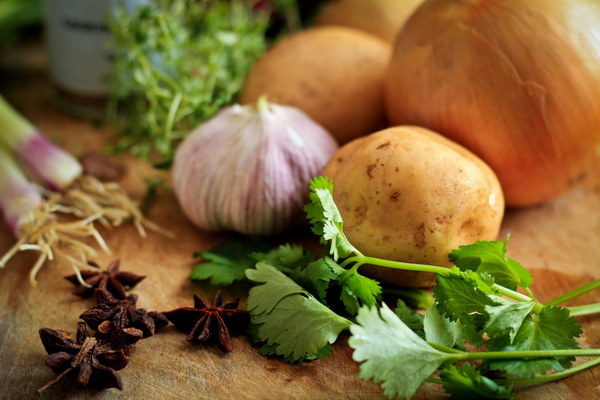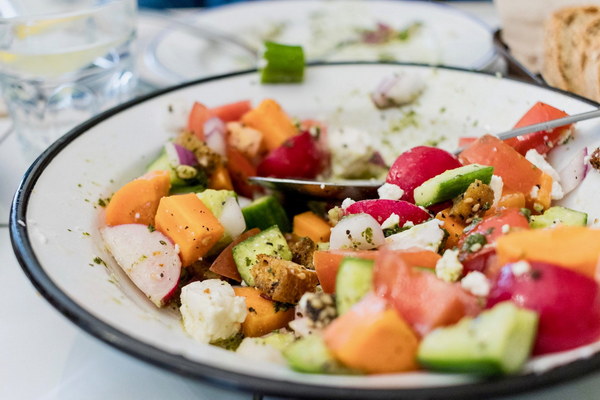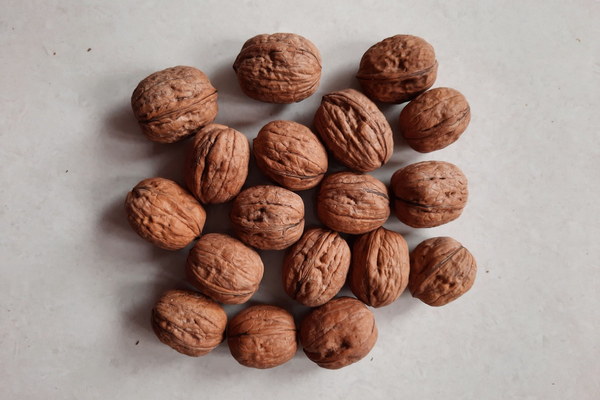Nourishing Your Childs Stomach A Guide to Foods that Boost Digestive Health
Introduction:
Childhood is a crucial period for physical development, and a healthy digestive system plays a vital role in overall well-being. To ensure your child's stomach is strong and capable of digesting nutrients efficiently, it is important to introduce the right foods into their diet. In this article, we will explore a variety of foods that can help nourish your child's stomach, promoting a healthy digestive system and supporting their growth and development.
1. Fermented Foods:
Fermented foods, such as yogurt, kefir, sauerkraut, and kimchi, are rich in probiotics, which are beneficial bacteria that promote gut health. These foods can help maintain a balanced gut microbiome, improve digestion, and boost immune function. Incorporate fermented foods into your child's diet by adding them to smoothies, sandwiches, or as a side dish.
2. Fruits and Vegetables:
Fruits and vegetables are packed with essential nutrients, fiber, and antioxidants that support digestive health. Encourage your child to consume a wide variety of colorful fruits and vegetables, such as apples, berries, carrots, broccoli, and spinach. These foods aid in digestion, reduce inflammation, and promote regular bowel movements. Include fruits and vegetables in their meals and snacks to ensure they receive these vital nutrients.
3. Whole Grains:
Whole grains, such as brown rice, whole wheat, oatmeal, and quinoa, provide dietary fiber, which is essential for healthy digestion. Dietary fiber adds bulk to the stool, making it easier to pass through the digestive tract and reducing the risk of constipation. Introduce whole grains gradually into your child's diet, starting with small portions and gradually increasing as they become accustomed to the texture and taste.
4. Lean Proteins:
Lean proteins, such as chicken, turkey, fish, and tofu, are excellent sources of amino acids, which are essential for muscle growth and repair. These proteins also help to keep the digestive system functioning properly. Ensure your child consumes a balanced amount of lean proteins, and incorporate them into their meals and snacks, such as chicken salad, fish sticks, or tofu stir-fries.
5. Healthy Fats:
Healthy fats, such as those found in avocados, nuts, seeds, and olive oil, are essential for nutrient absorption and gut health. These fats can help reduce inflammation in the digestive tract and support the production of bile, which aids in fat digestion. Include healthy fats in your child's diet by adding them to salads, sandwiches, or using them for cooking.
6. Herbs and Spices:

Herbs and spices, such as ginger, turmeric, and cinnamon, have anti-inflammatory properties that can help soothe the digestive tract. These natural remedies can alleviate symptoms of indigestion, bloating, and gas. Incorporate herbs and spices into your child's meals to add flavor and promote digestive health. For example, add a sprinkle of turmeric to rice or ginger to smoothies.
Conclusion:
By incorporating these nourishing foods into your child's diet, you can help ensure their stomach remains healthy and strong. Remember to introduce these foods gradually and in appropriate portions, as children may have different preferences and sensitivities. Encourage your child to eat a variety of foods to receive a wide range of nutrients, and consult with a healthcare professional if you have concerns about their digestive health. A balanced diet and proper nutrition are key to fostering a healthy and happy digestive system in your child.









